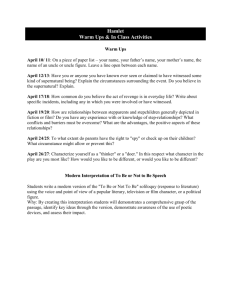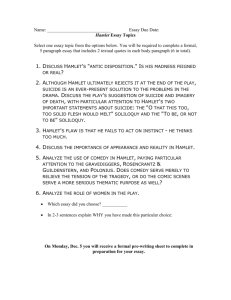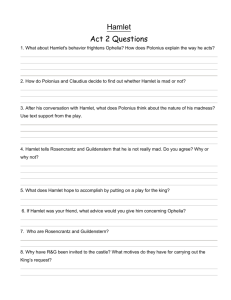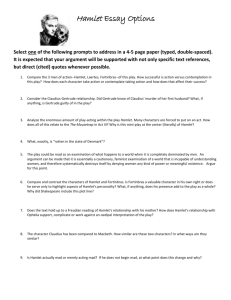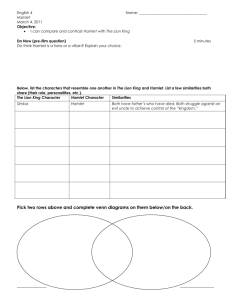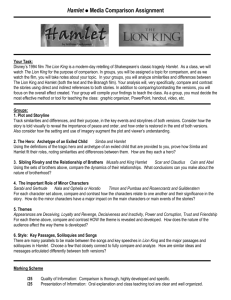Characterisation – Hamlet
advertisement
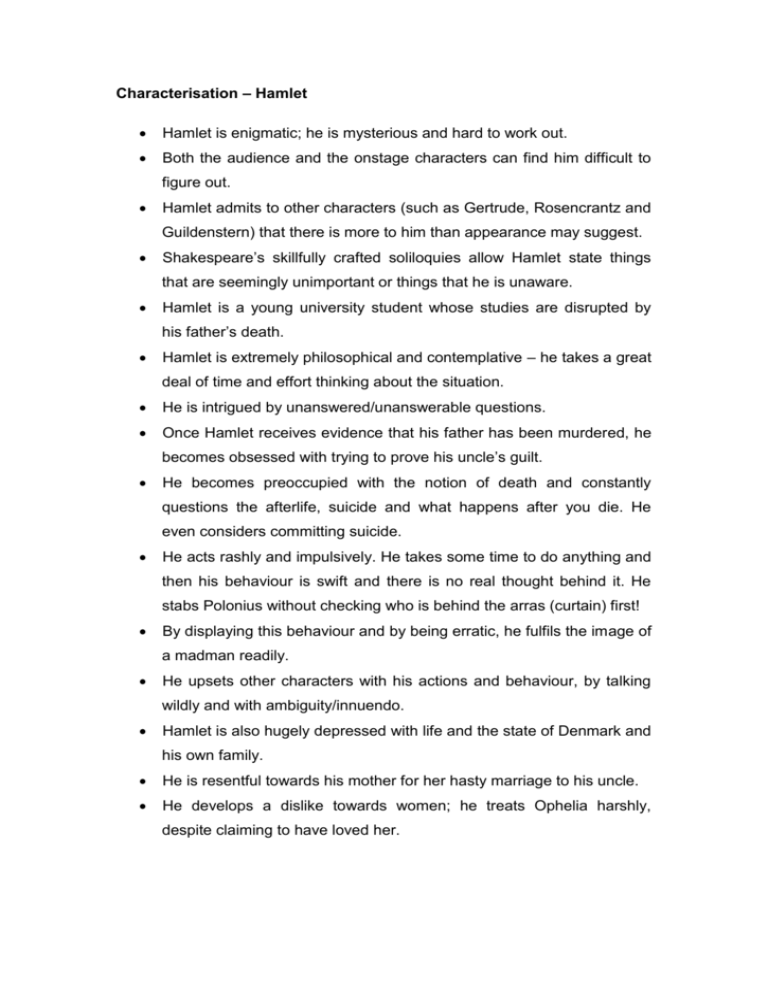
Characterisation – Hamlet Hamlet is enigmatic; he is mysterious and hard to work out. Both the audience and the onstage characters can find him difficult to figure out. Hamlet admits to other characters (such as Gertrude, Rosencrantz and Guildenstern) that there is more to him than appearance may suggest. Shakespeare’s skillfully crafted soliloquies allow Hamlet state things that are seemingly unimportant or things that he is unaware. Hamlet is a young university student whose studies are disrupted by his father’s death. Hamlet is extremely philosophical and contemplative – he takes a great deal of time and effort thinking about the situation. He is intrigued by unanswered/unanswerable questions. Once Hamlet receives evidence that his father has been murdered, he becomes obsessed with trying to prove his uncle’s guilt. He becomes preoccupied with the notion of death and constantly questions the afterlife, suicide and what happens after you die. He even considers committing suicide. He acts rashly and impulsively. He takes some time to do anything and then his behaviour is swift and there is no real thought behind it. He stabs Polonius without checking who is behind the arras (curtain) first! By displaying this behaviour and by being erratic, he fulfils the image of a madman readily. He upsets other characters with his actions and behaviour, by talking wildly and with ambiguity/innuendo. Hamlet is also hugely depressed with life and the state of Denmark and his own family. He is resentful towards his mother for her hasty marriage to his uncle. He develops a dislike towards women; he treats Ophelia harshly, despite claiming to have loved her.



